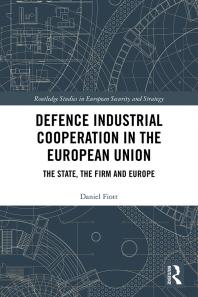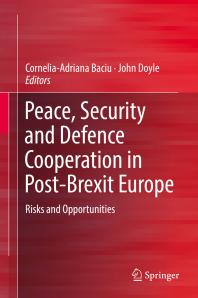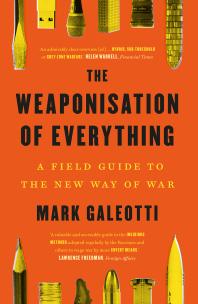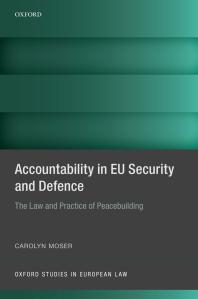Please also refer to the Europe of Defence guide
 European strategic autonomy and small states' security : in the shadow of power by
European strategic autonomy and small states' security : in the shadow of power by  The Routledge Handbook of European Security Law and Policy by
The Routledge Handbook of European Security Law and Policy by  Defence industrial cooperation in the European Union : the state, the firm and Europe by
Defence industrial cooperation in the European Union : the state, the firm and Europe by  Peace, security and defence cooperation in post-Brexit Europe : risks and opportunities by
Peace, security and defence cooperation in post-Brexit Europe : risks and opportunities by  The weaponisation of everything : a field guide to the new way of war by
The weaponisation of everything : a field guide to the new way of war by  Accountability in EU security and defence : the law and practice of peacebuilding by
Accountability in EU security and defence : the law and practice of peacebuilding by  L’Europe face à la remise en question de l’ordre post-guerre froide (2008-2023) by
L’Europe face à la remise en question de l’ordre post-guerre froide (2008-2023) by Please refer to the EU-NATO cooperation Library Guide.